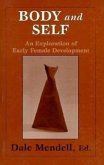Have you ever wondered why 95% of the people in prisons are men? Have you wondered why the great majority of school shootings were perpetrated by boys? What processes are at work sociologically and psychologically that engenders boys to become men? How are boys socialized to go from soft to hard in masculine definition? How does this mystery of masculinity contribute to male dominance and brutality? Is it possible that this process is responsible for the difficulty men have in relationships with women and their families? This research explores the interplay between the internal and the social by examining the intersection of gender, class and ethnicity in the masculinity shaping process. This study uses life cycle and social constructivist perspectives to explore the subjective experiences of men from varied subcultural contexts. A theory that has received much attention in feminist and men's studies circles is Chodorow's (1978) The Reproduction of Mothering, which reconceptualizes psychoanalytic notions of personality development to more fully include the impact of the structure of parenting on that process. Chodorow postulates that, due to the Industrial Revolution's virtual removal of the man from the world of the family, boys' and girls' psychological development varies greatly in their paths to gendered beings, resulting in men defining and overvaluing their own separateness. Simply, this results in men who have relational deficits and a lesser capacity for empathy and nurturance than women have. With feminist objectrelations theory in mind, this study explores the shaping of masculinities within three subcultural contexts. A total of thirty indepth personal narrative interviews were conducted with men from three subcultural contexts. Class was held relatively constant as the men interviewed were from urban and rural workingclass backgrounds. The interviewees included men who were members of Amish communities, as well as men from the AfricanAmerican workingclass in Pittsburgh and white workingclass men from Erie County, Pennsylvania. In listening to men's subjective experiences from varied life circumstances and subcultures, embedded in a particular sociohistorical context, the plurality of masculinities was informed and expanded. Through the interviews with the men from these three subcultures, feminist objectrelations theory was further informed and extended. The interviews suggest that gendermaking, definition and maintenance is a much more fluid and dynamic process than previously postulated in the feminist objectrelations literature. The psychoanalytic concept of ego boundaries was reconceptualized utilizing a systemic framework and redefined as a process of expansion and contraction, with contraction socially constructed as masculine.
Hinweis: Dieser Artikel kann nur an eine deutsche Lieferadresse ausgeliefert werden.
Hinweis: Dieser Artikel kann nur an eine deutsche Lieferadresse ausgeliefert werden.








